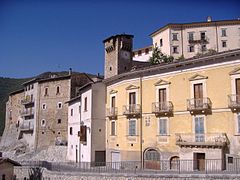
Abruzzo, historically known as Abruzzi, is a region of Southern Italy with an area of 10,763 square km and a population of 1.3 million. It is divided into four provinces: L'Aquila, Teramo, Pescara, and Chieti. Its western border lies 80 km (50 mi) east of Rome. Abruzzo borders the region of Marche to the north, Lazio to the west and north-west, Molise to the south and the Adriatic Sea to the east. Geographically, Abruzzo is divided into a mountainous area in the west, which includes the highest massifs of the Apennines, such as the Gran Sasso d'Italia and the Maiella, and a coastal area in the east with beaches on the Adriatic Sea.

The province of L'Aquila is the largest, most mountainous and least densely populated province of the Abruzzo region of Italy. It comprises about half the landmass of Abruzzo and occupies the western part of the region. It has borders with the provinces of Teramo to the north, Pescara and Chieti to the east, Isernia to the south and Frosinone, Rome and Rieti to the west. Its capital is the city of L'Aquila.

Celano is a town and comune in the Province of L'Aquila, central Italy, 120 km (75 mi) east of Rome by rail.
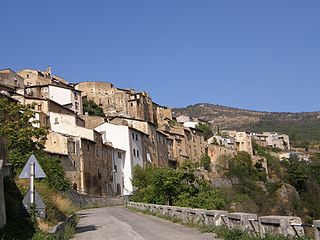
Acciano is a comune in the Province of L'Aquila in the Abruzzo region of Italy. The small, medieval village is in the Subequana valley and is a part of the Sirentina Mountain Community.

Anversa degli Abruzzi is a comune and town in the province of L'Aquila in the Abruzzo region of southern Italy. It is one of I Borghi più belli d'Italia.
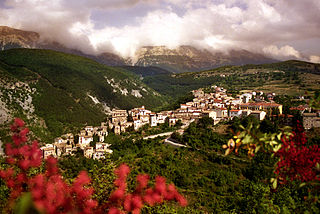
Cansano is a comune in the province of L'Aquila in the Abruzzo region, Southern Italy. It is part of the Maiella National Park. Cansano is known for the archaeological discovery of the Italic and Roman town of Ocriticum, which has become an archaeological park.

Castelvecchio Subequo is a comune and town in the province of L'Aquila in the Abruzzo region, central Italy, at the feet on Mount Sirente.
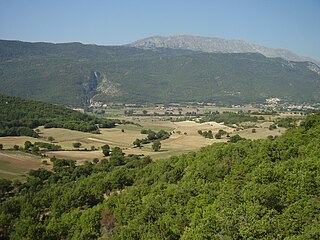
Fagnano Alto is a comune and town in the province of L'Aquila in the Abruzzo region of Italy.

Fossa is a comune and town in the province of L'Aquila in the Abruzzo region of southern Italy. Bernardino of Fossa was born in the town. The 2009 L'Aquila earthquake contributed to the collapse of a bridge in Fossa, and caused extensive damage to the residential buildings in the town. The town was the epicentre of a major aftershock 5.4 Mw on April 7, 2009.
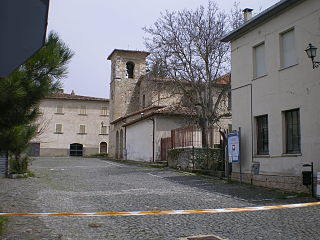
Ocre is a comune (municipality) and town in the province of L'Aquila in the Abruzzo region of southern Italy.
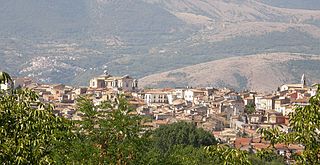
Pratola Peligna is a comune and town in the Province of L'Aquila in the Abruzzo region of Italy. As of 2015, it has a population of 7,652 inhabitants.
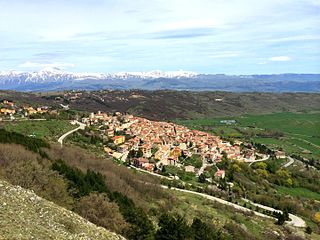
Rocca di Cambio is a comune and town in the province of L'Aquila in the Abruzzo region of Italy.
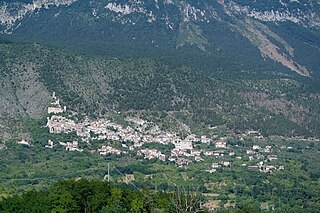
Roccacasale is a comune in the Province of L'Aquila in the Abruzzo region of Italy. Built on the slopes of the Monte della Rocca in the central Apennines, the village overlooks the Peligna Valley and the town of Sulmona.
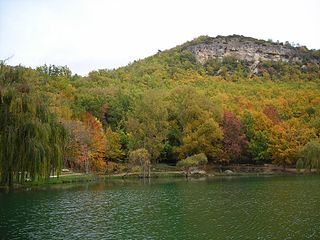
San Demetrio ne'Vestini is a comune and town in the Province of L'Aquila in the Abruzzo region of Italy
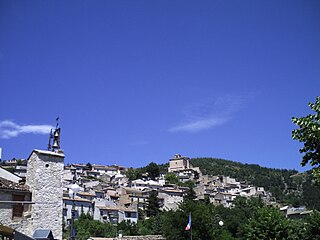
Secinaro is a comune and town in the province of L'Aquila in the Abruzzo region of central Italy. It is located in the Aterno River valley, on the slopes of Monte Sirente.
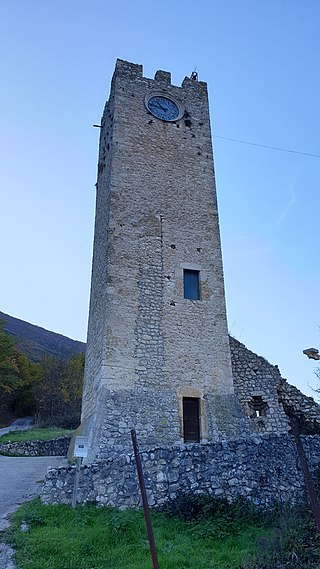
Tione degli Abruzzi is a comune in the province of L'Aquila in the Abruzzo, region of Italy.

Villa Sant'Angelo is a comune and town in the province of L'Aquila, in the Abruzzo region of Italy, which lies in the Aterno River valley near the convergence of the Sirente and the Gran Sasso mountain ranges. Many of the municipal functions are managed cooperatively with adjacent villages, comprising the Comunità Montana Amiternina.

Marsica is a geographical and historical region in Abruzzo, central Italy, including 37 comuni in the province of L'Aquila. It is located between the plain of the former Fucine Lake, the National Park of Abruzzo, Lazio and Molise, the plain of Carsoli and the valley of Sulmona.

Tourism in Abruzzo has become one of the most prosperous sectors in the economy of Abruzzo, and in recent years has seen a remarkable growth attracting numerous tourists from Italy and Europe. According to statistics, in 2021 arrivals totaled 1,330,887. A total of 5,197,765 arrivals were tourists, a figure that puts the region seventeenth among the Italian regions for numbers of tourists per year. A moderate support to tourism is also given to the Abruzzo Airport with many low cost and charter flights connecting the entire region with the rest of Europe.

The Terni–Sulmona railway is a regional railway line in central Italy, managed by Rete Ferroviaria Italiana. It links three regions, Umbria, Lazio and Abruzzo, and three provincial capitals: Terni, Rieti and L'Aquila. Together with the Sulmona–Isernia railway it forms a north–south corridor through the Apennines in central Italy. Its route is the result of two unfinished railways that had to meet in Rieti: the Pescara–L'Aquila–Rome line, and the Terni–Avezzano–Roccasecca line.
